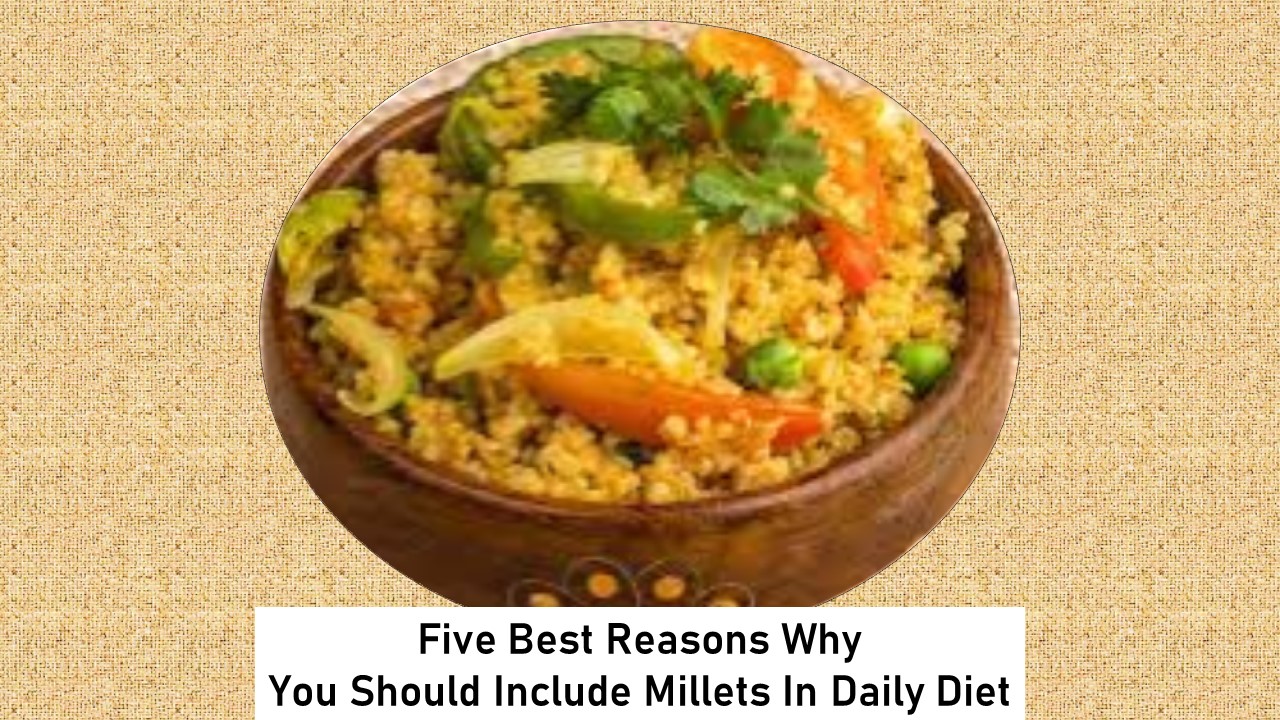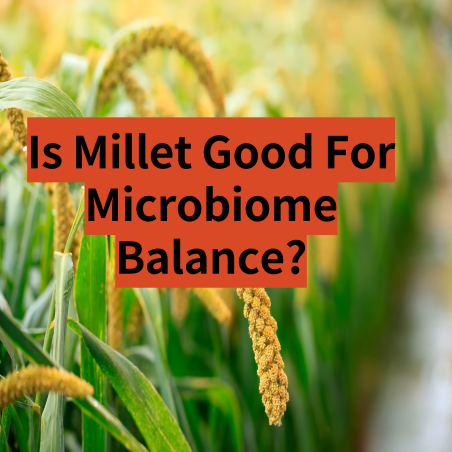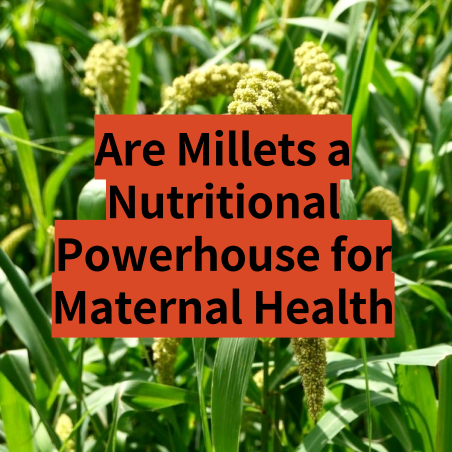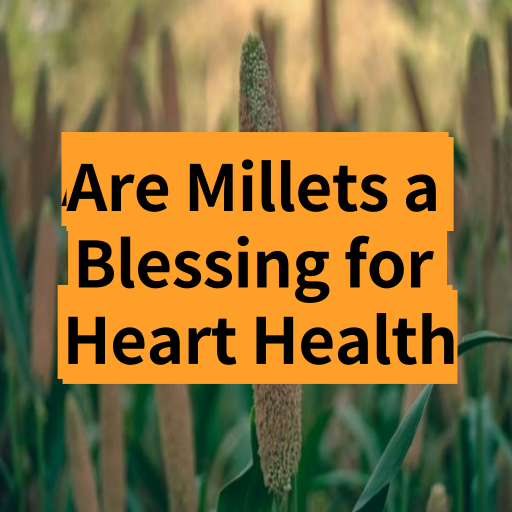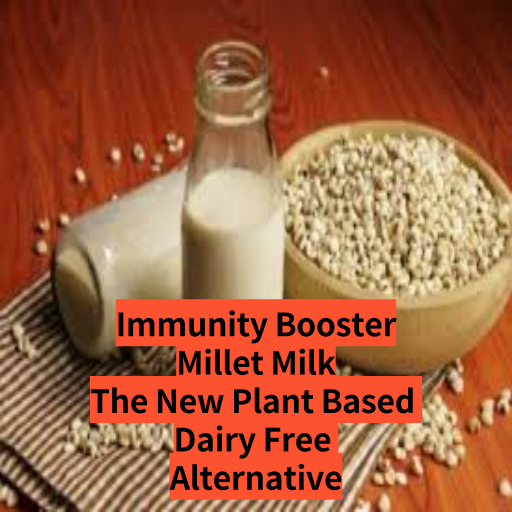In recent years, Indian cooking has evolved a lot, but it has also returned with pride to its traditional beginnings.
Even while enjoying rice and wheat as staples, we went back in search of classic dishes and recipes and found millets! We found that millets were a staple in our ancestral diet.
In recent years, people have become very interested in millet, and bland gluten-free whole grains that had been forgotten have made a surprising comeback in grocery stores.
So, what exactly are millets?
Millets, a native Indian crop with a great nutritional profile, are small, round coarse grains. Known as the “poor man’s food grain,” they are renowned for their low cost. It’s a tough crop that can thrive in arid conditions and on less-than-ideal soil, resisting drought and pests. All millet varieties are in the Poaceae family but differ in color, shape, and species.
Nutritional Data
Millets have important nutrients like proteins, fiber, B vitamins, calcium, iron, manganese, magnesium, phosphorus, zinc, potassium, copper, and selenium. They are a good source of antioxidants, flavonoids, anthocyanins, saponins, and lignans and are also good for your health.
5 Reasons to Include Millet in Your Diet:
Did you know that contrary to popular belief, there is more than one kind of grain in the millet family? They are more eco-friendly than other grains since they need less water, and rich soil can naturally resist pests and have many health benefits. If you are still confused about adding millet to your diet, here are five good reasons why you should:
Control Blood Glucose Levels
In contrast to wheat and maize, millets have a lower glycemic index of 54–68 and are gluten-free. The high amounts of nutrients, like fiber, complete proteins, vitamins, and minerals, help to keep blood sugar levels steady. Diabetic patients can benefit from millets because they help control blood sugar levels and increase insulin sensitivity.
Millet for weight loss:
If you’re trying to control your weight, replacing your usual rice or wheat-based meals with millet can help you lose weight healthily without sacrificing taste. Millets are useful for reducing body fat. Millets come in so many types that those on a millet diet for weight reduction never have to eat the same thing repeatedly. Losing weight doesn’t have to mean giving up your favorite foods.
Promotes better mental and digestive health:
The health of the digestive system, or the “gut,” measures how well the body functions overall. Constipation, bloating, gas, and other digestive issues may hurt a person’s ability to think clearly and get things done. Millets have a calming effect on your digestive system and provide other benefits. Your immunity may be boosted by improving your body’s ability to absorb nutrients from food. When digestion is trouble-free, sleep quality improves, as does morning freshness; this, in turn, boosts your mood and mental health, which benefits your relationships and productivity at work.
Benefits Your Heart
Millets contain various antioxidants, including beta-glucans, flavonoids, anthocyanidins, tannins, lignans, and policosanols. Antioxidants are important for lowering the risk of heart disease and stroke. They do this by lowering LDL cholesterol and total cholesterol, keeping blood vessels healthy, and breaking up clots.
Fighting Cancer Cells
Studies have shown that some millets, including foxtail and proso millets, can prevent the spread of malignant cells in several tissue types. The phytochemicals in millets have antiproliferative properties that stop the growth of cancerous cells in the colon, breast, and liver without hurting healthy cells.
Categories of Millets
There are two main categories of millet:
Naked Grains
Naked grains, including ragi, jowar, and bajra, are millets that don’t have a stiff, indigestible husk. These millets are unique because they can be eaten immediately after harvesting and washing. For this reason, crops like millet are now extensively planted.
Husked Grains
Unhusked millets have a seed coat that must be removed before cooking because it is indigestible. These grains go through a separate hulling process, formerly done by hand but now mechanically, to remove the husks. There are many millets, but the most common ones are foxtail, small millets, and Kodo millets.
Millets have a lot of minerals and fiber, which help you lose weight, lower your blood pressure and glucose levels, and keep your heart and blood vessels healthy. As a result, they are a beneficial addition to the diet. Also, the crops grown here are mostly watered by rain, so they don’t attract pests and do well without pesticides. This is also good for nature.
Conclusion:
Including millets in your daily diet is one of the finest choices you can make for your health and the health of your loved ones since millets are so rich in all the critical nutrients, minerals, and proteins that you need for a well-functioning mind and body. Since so many kinds of millet may be ground into flour or used as whole grains, you won’t have to give up any of your favorite foods. This includes rice, rotis, dosa, idli, pizza, upma, porridge, kichdis, pongal, and pulao, to name a few.
And this is why we believe eating millet keeps you healthy and satisfies your appetite.
FAQs
What would happen if you ate millet every day?
Millet is slow to digest because of its low carbohydrate composition. Because of this, glucose metabolism is slower. As it takes longer for glucose to reach the bloodstream, blood sugar levels remain stable. People with diabetes may benefit from this because they have to keep an eye on and control their blood sugar levels often.
Does millet help your immune system response?
It’s great for the immune system and for preventing diseases. In addition to this, it is a good source of several minerals that the body needs to function, including iron, manganese, magnesium, phosphorus, potassium, copper, selenium, and zinc. When consumed regularly, millets may help us build up a natural defense against a variety of harmful diseases.
What millet is beneficial to mental health?
Millets like foxtail should be a regular part of your diet, especially since mental illnesses and mental health problems are becoming more and more common. Vitamin B1 is good for the nervous system and is sometimes called a “morale vitamin” because it helps people stay focused. For more details visit us.

